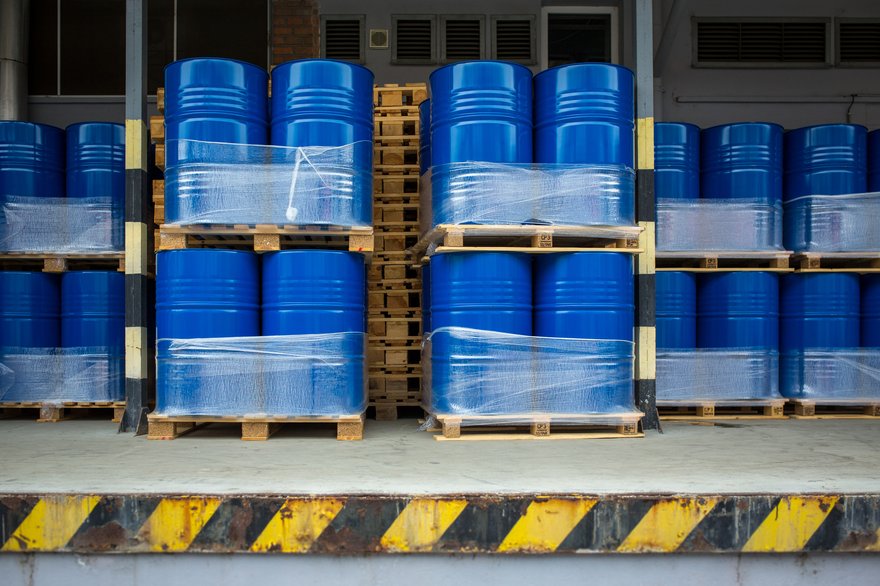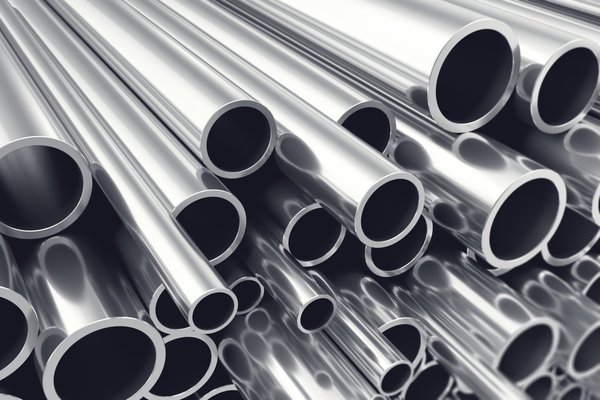The materials sector produces many of the building blocks needed to make the things we use every day. That makes it an important industry for investors to know about.

What is the materials sector?
The materials sector includes a wide variety of companies, including those that manufacture or mine:
- Chemicals, plastics, and glass
- Construction materials
- Paper, forest products, and packaging products
- Metals and minerals
Demand for materials is cyclical, making the sector's participants highly susceptible to changes in the economy. If economic conditions weaken, demand for basic materials tends to decline, lowering prices and affecting profitability for materials producers.
The economic cycle, however, is only one of many factors that can affect the materials sector. Supply chain issues, legislation, and inflation are just some of the other factors that can affect demand, prices, and industry profitability for the materials sector.
In 2022, a new headwind emerged in the sector in the wake of Russia’s invasion of Ukraine. The war disrupted the global supply chain for materials because the region produces vital metals for making steel and exports minerals for fertilizer, such as potash. The supply issues drove up prices of most basic materials, greatly affecting the sector and the broader economy.
Top materials stocks in 2024
Although many companies operate in the materials industry, the following four stand out as some of the top materials stocks for investors to consider:
| Company | Description |
|---|---|
| Rio Tinto (NYSE:RIO) | A leading global mining company |
| Nucor (NYSE:NUE) | A major U.S. steelmaker |
| Air Products & Chemicals (NYSE:APD) | A global supplier of industrial gases |
| Eagle Materials (NYSE:EXP) | A major U.S. producer of concrete, cement, and drywall |
1. Rio Tinto
Rio Tinto is one of the world's leading mining companies. The London-based company produces the three top industrial metals -- iron ore, aluminum, and copper -- and several other important metals and minerals.
Rio Tinto focuses on these industrial metals because they are the ones the global economy most commonly consumes. The uses for iron ore, aluminum, and copper are numerous and growing:
- Iron ore: The primary material for making the steel used for cars, appliances, buildings, wind turbines, and other infrastructure.
- Aluminum: A lightweight metal and a vital component for many technology applications. Aluminum is used to make jet engines, electric vehicles, and mobile phones.
- Copper: Copper is an excellent conductor of electricity, making it essential for electronics, electric vehicles (EVs), and for producing solar energy. It is also a vital component of many technology applications.
Although these metals are highly sensitive to cyclical changes in the global economy, demand for the metals Rio Tinto produces should continue to grow.
The company also boasts a strong balance sheet and some of the lowest-cost operations in the world. It has the financial flexibility to expand its operations while returning cash to investors via share repurchases and dividend payments. As a result, Rio Tinto is well-positioned to cope with changes in demand for these commodities and create value for its shareholders.
2. Nucor
Nucor is the largest and most diversified steel and steel products company in North America. It’s also the continent’s largest steel recycler.
The company’s focus on steel positions it for two megatrends. First, steel is essential for making wind turbines, so it’s vital to the renewable energy industry. Steel is also crucial for infrastructure, such as bridges and railways, making it a beneficiary of increased infrastructure spending in the U.S.
Nucor has a low and highly variable cost structure. Because of that, it has a long history of generating free cash flow throughout the cycle. The steelmaker has maintained a strong balance sheet and delivered its 49th straight annual dividend increase in late 2021. The increase put Nucor on track to become a Dividend King.
3. Air Products & Chemicals
Air Products & Chemicals is one of the world’s leading industrial gas companies. It supplies essential industrial gasses to the refining, chemical, metals, electronics, manufacturing, and food and beverage industries. It’s also a leading global supplier of liquefied natural gas (LNG) process technology and equipment.
The company is a major supplier of hydrogen, which could play an important role in fueling the economy in the future. In addition, its expertise in carbon capture and storage could help reduce greenhouse gas emissions. Add that to its importance to the growth of LNG, a widely used fuel, and Air Products is playing a vital role in helping the global economy transition to cleaner energy sources.
Air Products also boasts a strong financial profile, including an excellent balance sheet and healthy cash flow. That gives it the financial flexibility to expand its operations and pay a growing dividend. The company is a Dividend Aristocrat and delivered its 40th consecutive annual dividend increase in early 2022.
4. Eagle Materials
Eagle Materials is a leading U.S. building materials producer. It manufactures heavy materials (cement, concrete, and aggregates) and light materials (gypsum wallboard and recycled paperboard). These materials are crucial to the construction industry.
Eagle Materials strategically focuses on operating heavy materials manufacturing capacity in the U.S. heartland, limiting the impact of competition from imports. Meanwhile, it concentrates its light materials manufacturing capacity in the southern portion of the country where home construction is rising. These features enable it to benefit from higher prices and make more money on the materials it produces.
Eagle Materials produces a lot of cash, giving it the funds to expand its operations and return capital to shareholders through dividends and share repurchases. Its expansion focus in recent years has been on the heavy materials side of its business, acquiring several cement manufacturing facilities to boost its capacity. Those deals have helped increase its earnings and shareholder value. Meanwhile, it has sold non-core assets to maintain a strong financial position so that it can take advantage of expansion opportunities when they arise.
Related investing topics
Should you invest in materials stocks?
While all companies in the basic materials sector face risks related to the health of the economy, the best materials companies are well-positioned financially and benefit from a diversified portfolio of operations. The top materials companies have multiple businesses, investment-grade bond ratings, manageable debt, and low production costs. These factors enable them to still make money even when materials prices decline.
Materials companies are more likely to perform well when the economy is booming, making these companies a better buy in bull markets. But, even when the economy is growing, fierce competition in the materials sector tends to restrict companies' abilities to generate substantial profit, which affects share prices.
Investors need to be very picky when choosing materials stocks. They need to focus their attention on well-run, financially strong companies with visible growth prospects. A sharp focus increases the probability that materials stocks can deliver attractive returns for investors.




















